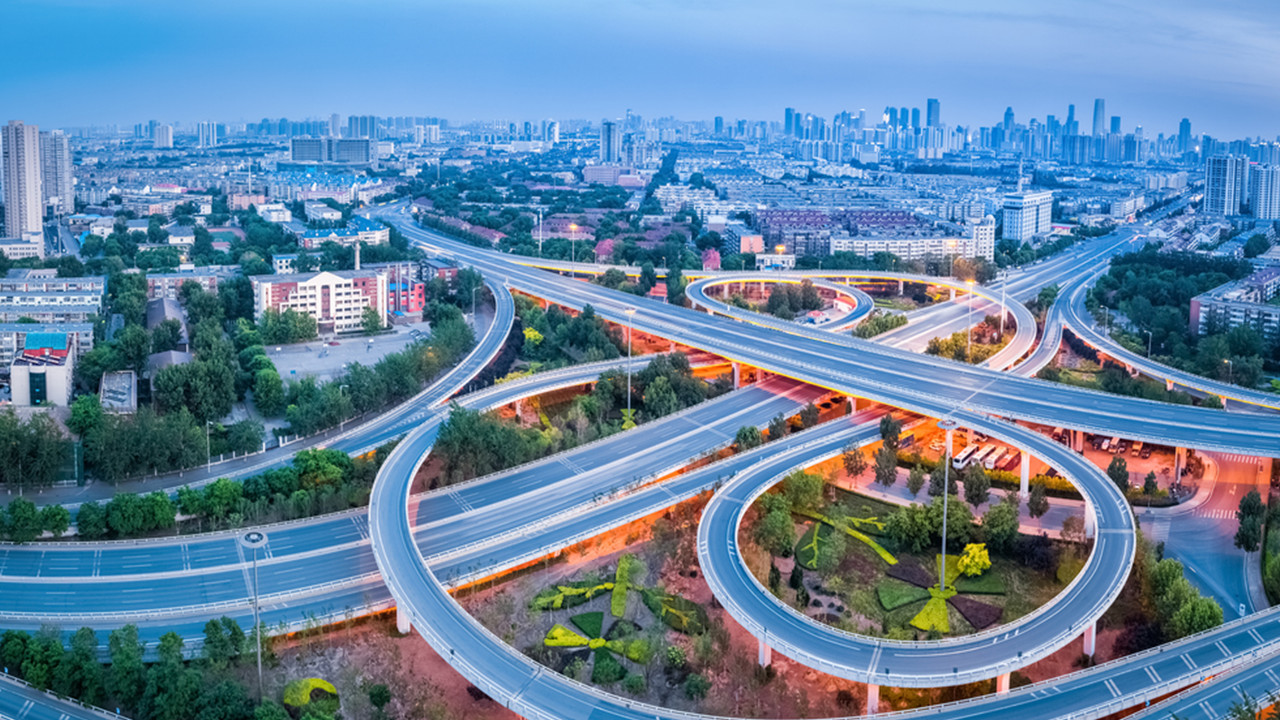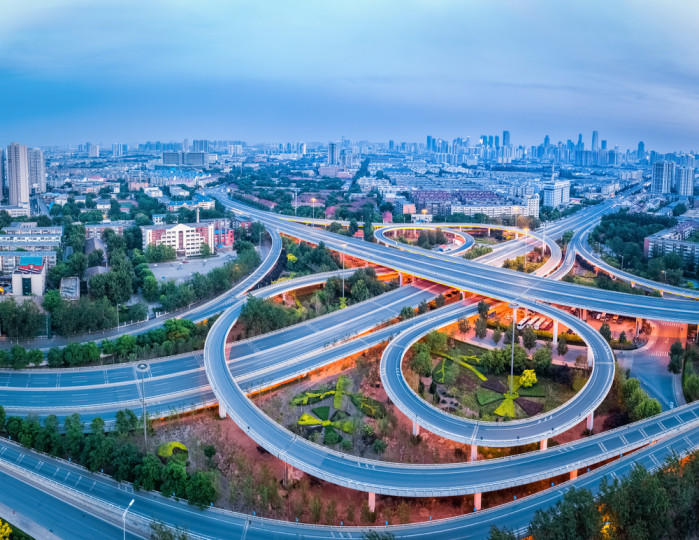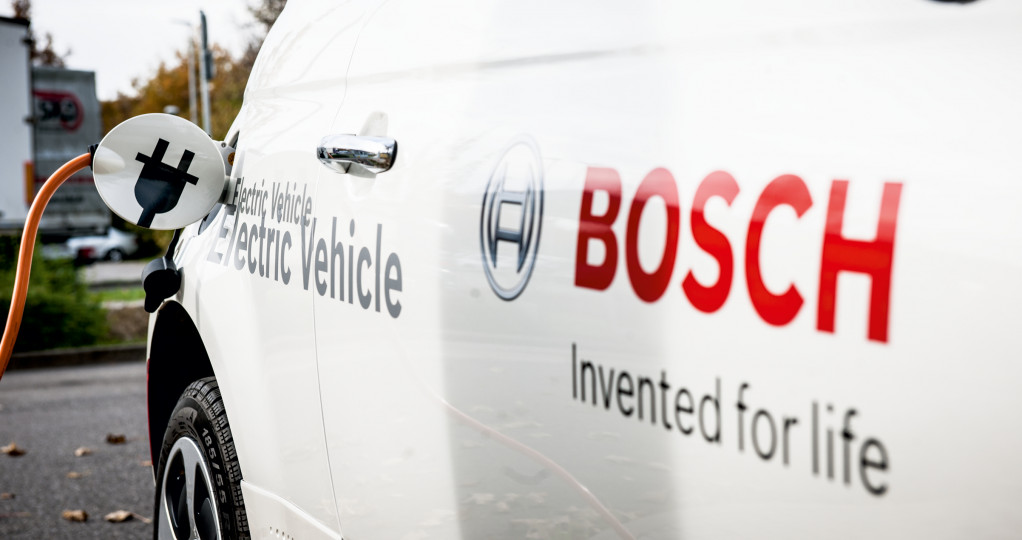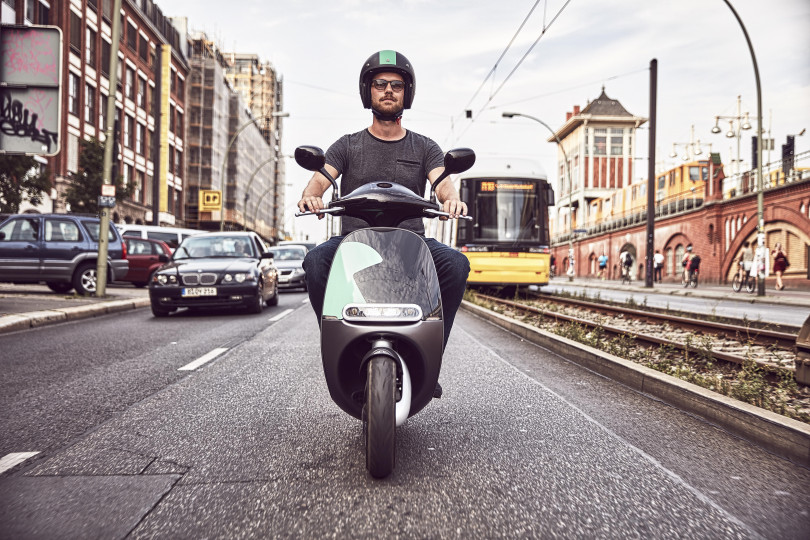Boxberg, Germany – Bosch is becoming a provider of mobility services for conurbations. In the future, the company will focus more on developing and providing mobility solutions in connected, smart cities. The demand for smart mobility concepts for the urban environment is rising rapidly worldwide. Megacities across the globe are full to bursting point. In many places, there is a threat of total gridlock. More and more people are returning to cities, or will live there in the future. By 2050, there will be more than six billion people living in megacities, twice as many as now. By then, urban traffic will have tripled. With roughly two-thirds of the global population living in conurbations in 2050, and the growth in urbanization this will involve, there will also be a growing number of problems.
More and more people in a limited amount of space will also mean more traffic, and thus more pollution, less green space, more noise, and more time wasted sitting in traffic. “With technological solutions, Bosch can help improve quality of life in megacities and conurbations. The main means to this end is emissions-free, stress-free, and accident-free mobility,” says Dr. Rolf Bulander, member of the board of management of Robert Bosch GmbH and chairman of the Mobility Solutions business sector. In business terms as well, smart cities are a growth area for the supplier of technology and services. In the period up to 2020 alone, the smart-city market will grow 19 percent each year, reaching a volume of 700 billion euros. In its cross-selling projects, Bosch has already doubled its sales in this sector over the past two years.
Today: congested roads and polluted air
Ages spent looking for somewhere to park, inefficient final-mile delivery, roads chockablock with private cars – all these are already common mobility problems in many large cities. “For city-dwellers, it’s the same old story – congested roads. There’s no sign of progress. It’s high time the opportunities offered by connectivity were used to make urban traffic smart,” Bulander says. In the future, no megacity will work without smart traffic, and a new model for mobility. “We are moving away from the car-centric city to an idea of mobility that is both smart and multimodal,” he adds.
Tomorrow: emissions-free, stress-free, and accident-free mobility
At the Bosch Mobility Experience in Boxberg, Bosch is demonstrating how the company is shaping urban mobility: “Our efforts to help create an urban environment that is free of emissions, stress, and accidents are tied to three technological developments,” Bulander says: “ automation, electrification, and connectivity.” For Bosch, the focus here is on getting from A to B without stress. To achieve this even in a bustling metropolis, public transportation, cars, self-driving shared and delivery vehicles and other means of transport − in short: all the means of transport in the city – will have to be seamlessly connected with each other. “Multimodal mobility services that users can reserve with just a few mouse-clicks will play a major role in reducing congestion.”
The increasing automation of urban traffic will also result in greater safety and fewer accidents. Even now, Bosch’s motorcycle stability control MSC provides a kind of ESP for motorbikes. And the ABS for e-bikes that was recently premiered may also be an important lifesaver. “Connecting cars, two-wheelers, other road users, and infrastructure may help reduce accidents, and thus save lives. Especially in emerging markets, road users such as riders of two-wheelers are at risk” Bulander says. One of the solutions Bosch has developed for this is a digital shield for motorcyclists. And in emergencies, the eCall developed specifically for motorbikes can save lives.
Electromobility and combustion engines for better air quality
Especially in conurbations, air quality will remain an important issue. For this reason, Bosch is pursuing the goal of low emissions traffic. “In the cities of the future, both electromobility and combustion engines will be part of the solution,” Bulander says. Even now, Bosch’s e-bike business makes it the market leader for drive units for the world’s most successful electric vehicle. More than 200 million e-scooters are on the road in China, and Bosch powertrains play a role here as well. For light two-, three- and four-wheel electric vehicles, Bosch has developed a compact powertrain system that can power two-wheelers such as the E-Schwalbe and small four-wheel vehicles such as the e.Go. Moreover, parcel deliveries in large cities are becoming increasingly electrified. German company Deutsche Post DHL is already leading the way here with its Streetscooter, which also features Bosch powertrain components. Apart from driving forward the development of electromobility in all vehicle classes and segments, the company is working to further improve the combustion engine. Bosch spends half its R&D budget on environmental protection and resource conservation. All in all, this is a sum of roughly 3.5 billion euros.
Full-liner for smart cities
Even now, Bosch is pursuing 14 beacon projects relating to smart cities. They include urban projects in Singapore, San Francisco, Berlin, and Hamburg. Seven projects include urban mobility solutions. Apart from connected parking and fleet management, these solutions also involve electromobility and multimodal transport. Bosch’s latest collaboration agreement in the area is with the Chinese city of Tianjin. The aim of this alliance is to make this port into a smart city.
Growing three times faster than the market
In its transformation into a provider of urban mobility, the company is benefiting both from its technological expertise as the world’s leading automotive supplier and from its economic clout: the Mobility Solutions business sector’s 227,000 associates worldwide generated sales of 43.9 billion euros in 2016. This year, the Bosch Group’s mobility business is expected to grow by some 7 percent. This is nearly three times as fast as global automotive production. “We are growing faster than the market and, as an automotive systems supplier, will remain a strong and above all innovative partner of the automotive industry. Moreover, we are evolving into a provider of services for every road user,” Bulander says. This also means that Bosch will be reinforcing the Mobility Solutions business sector’s research and development efforts over the course of the year. By the end of 2017, the business sector will employ 48,000 R&D associates, roughly 4,000 more than at the start of the year.
Mónika Hack
+36 70 510 5516
Mobility Solutions is the largest Bosch Group business sector. According to preliminary figures, its 2016 sales came to 44.0 billion euros, or 60 percent of total group sales. This makes the Bosch Group one of the leading automotive suppliers. The Mobility Solutions business sector combines the group’s expertise in three mobility domains – automation, electrification, and connectivity – and offers its customers integrated mobility solutions. Its main areas of activity are injection technology and powertrain peripherals for internal-combustion engines, diverse solutions for powertrain electrification, vehicle safety systems, driver-assistance and automated functions, technology for user-friendly infotainment as well as vehicle-to-vehicle and vehicle-to-infrastructure communication, repair-shop concepts, and technology and services for the automotive aftermarket. Bosch is synonymous with important automotive innovations, such as electronic engine management, the ESP® anti-skid system, and common-rail diesel technology.
The Bosch Group is a leading global supplier of technology and services. The company employs roughly 360,000 associates worldwide (as per December 31, 2016). According to preliminary figures, the company generated sales of more than 73.1 billion euros in 2016. Its operations are divided into four business sectors: Mobility Solutions, Industrial Technology, Consumer Goods, and Energy and Building Technology. As a leading IoT company, Bosch offers innovative solutions for smart homes, smart cities, connected mobility, and connected manufacturing. It uses its expertise in sensor technology, software, and services, as well as its own IoT cloud, to offer its customers connected, cross-domain solutions from a single source. The Bosch Group’s strategic objective is to create solutions for a connected life, and to improve quality of life worldwide with products and services that are innovative and spark enthusiasm. In short, Bosch creates technology that is “Invented for life.” The Bosch Group comprises Robert Bosch GmbH and its roughly 450 subsidiaries and regional companies in some 60 countries. Including sales and service partners, Bosch’s global manufacturing, engineering, and sales network covers nearly every country in the world. The basis for the company’s future growth is its innovative strength. At 120 locations across the globe, Bosch employs 59,000 associates in research and development.
Additional information is available online at www.bosch.com, www.iot.bosch.com, www.bosch-press.com, www.twitter.com/BoschPresse, www.bosch.hu







